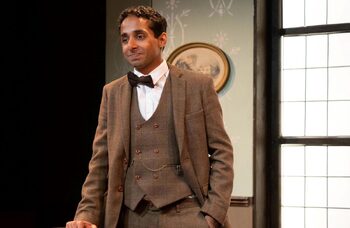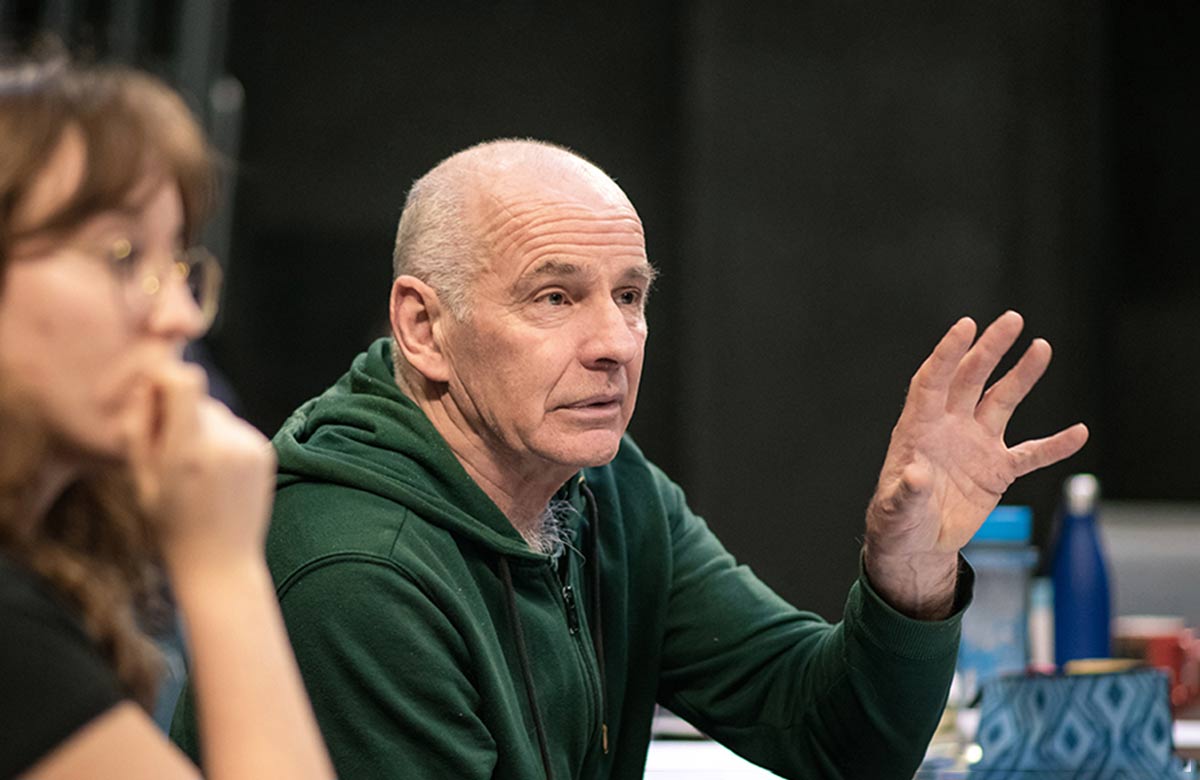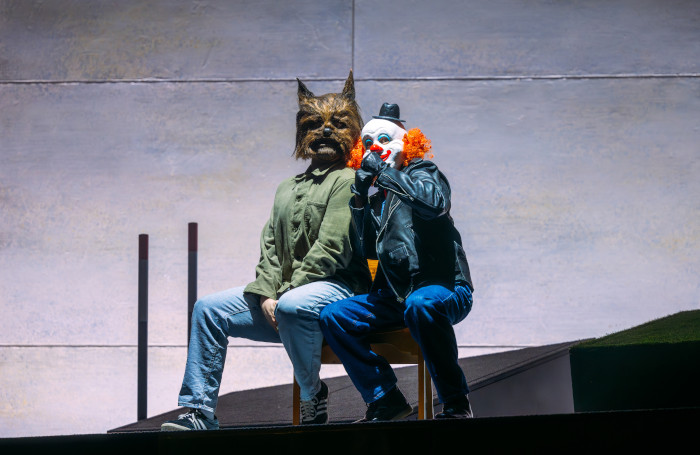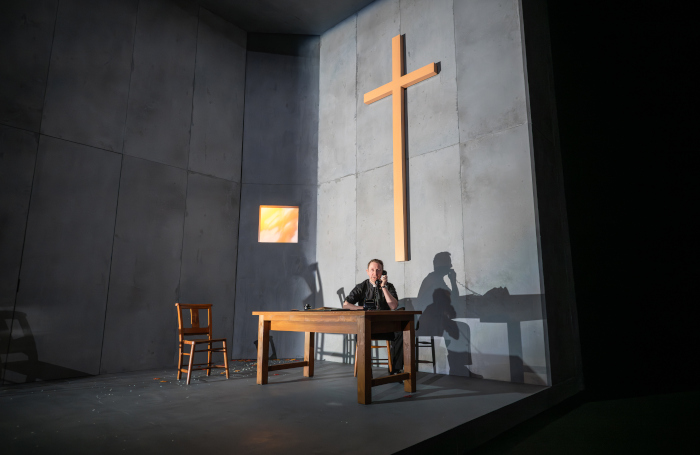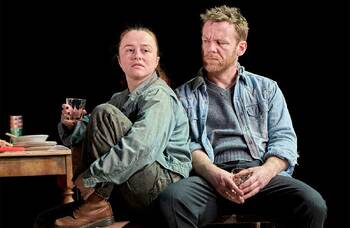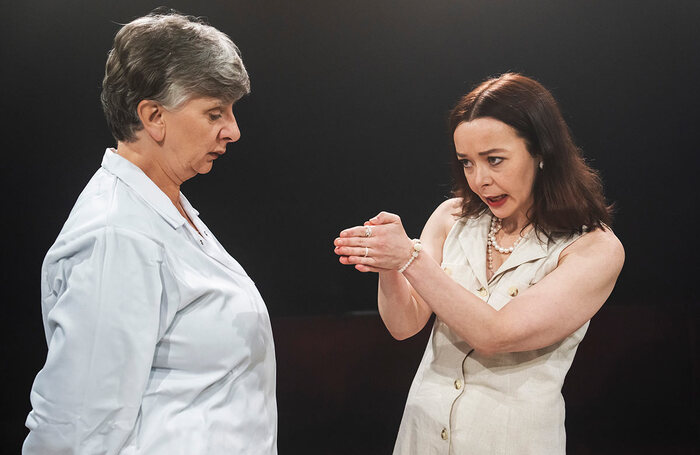
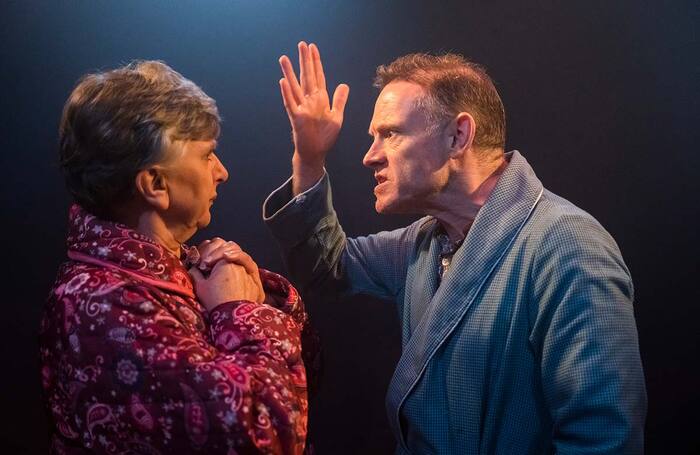
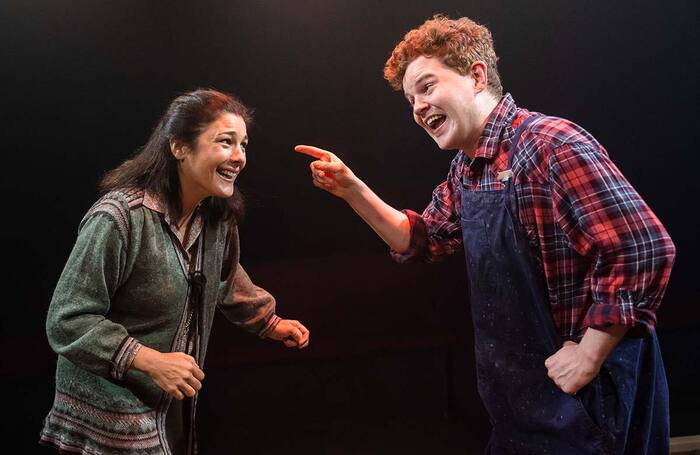




Absorbing and intimate revival of three rarely staged Ena Lamont Stewart shorts
Isolation and loneliness are the connecting themes of this trio of Glasgow-set shorts by Scottish playwright Ena Lamont Stewart. In Finlay Glen’s intimate and absorbing production, Towards Evening, Walkies Time for a Black Poodle and Knocking on the Wall all begin with a disembodied voice betraying their characters’ inner monologues – emphasising their reliance on their own skewed judgements for company.
Lamont Stewart was famously determined to give real people a place on stages she felt were overpopulated with depictions of high society in the 1940s. Her most famous play, Men Should Weep, examined the lack of women’s equality in the 1930s. This rarely staged, 1970s-set trio of works tackles mental-health struggles and divisions of wealth and class. Each play paints a scenario that is vivid and familiar, yet is explored with originality and honesty.
Towards Evening presents a window on to an unconventional retirement set-up: learned brother Leonard (Robert Hands) and his recluse sister Edie (Janette Foggo) have recently moved in together in a compromise to escape loneliness and poverty. Neither ever married, both are insomniacs, and we find them airing past regrets and fears for the future in the dead of night.
Continues...
In Walkies Time for a Black Poodle, Ella (Joanne Gallagher), a wealthy woman with working-class roots, feels estranged from her friends on the estate where she grew up. She resents her privately educated cleaner Maggie (Foggo), who better understands the social cues of the class that Ella struggling to break into. Then something unexpected brings the two together.
And in Knocking on the Wall, middle-class, agoraphobic Dorothy (Jasmine Hyde) finds her prejudices about tradespeople, reinforced by her sister and carer Isobel (Gallagher), challenged when she shares a laugh with plumber Alec (Matt Littleson). His arrival makes Dorothy realise how isolated she has been.
All three pieces are set in living rooms, with Delyth Evans’ set presenting new furniture and flooring for each play. It’s a reminder that loneliness can haunt any home, regardless of wealth or class. The cast gives strong performances, even if the titular play sometimes feels rushed in its nought-to-100 excitement. Foggo, as the grouchy Edie and prim Maggie, and Gallagher, as the pugnacious Ella and exasperated Isobel, are especially good.
While these stories are not quite hopeful, there’s at least a sense of peace and allyship at their end. The plays drip-feed us their characters’ predicaments, and then are wrapped up a little too quickly. I would gladly have lingered longer in all three. It’s a treat to see them on stage.
More Reviews
Recommended for you
More Reviews
Recommended for you
Most Read
Across The Stage this weekYour subscription helps ensure our journalism can continue
Invest in The Stage today with a subscription starting at just £7.99
